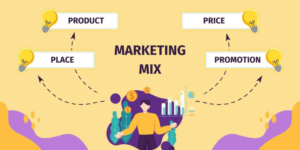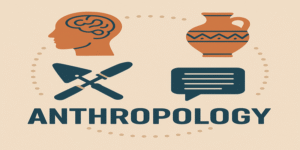Integrity is one of the most fundamental values guiding both personal behaviour and professional conduct. It refers to adherence to moral and ethical principles, even when doing so may be difficult or unpopular (Ciulla, 2020). Integrity goes beyond honesty—it encompasses consistency, trustworthiness, and moral courage. As there is a saying which states, “Wrong is wrong, even if everyone is doing it. Right is right, even if no one is doing it.” This captures the essence of integrity as a moral compass that remains stable despite external pressures.
In modern workplaces and societies where ethical challenges frequently arise, the presence or absence of integrity significantly affects trust, leadership, and organisational success. This article examines the three dimensions of integrity — personal, relational, and social—and provides practical insights into fostering integrity at workplace for fostering successful professional life.
1.0 The Concept of Integrity
The term integrity originates from the Latin word integer, meaning “whole” or “complete.” It implies a unity between one’s values, words, and actions (Audi & Murphy, 2006). According to Mullins (2020), individuals with integrity exhibit consistency between their beliefs and behaviours, forming the foundation of ethical leadership and credibility.
Integrity can be categorised into three interrelated forms (as depicted in the image):
- Integrity with ourselves,
- Integrity with those we know, and
- Integrity with strangers.
Each dimension reflects how moral behaviour manifests in various contexts—from self-reflection to interpersonal and societal interactions.
1.1 Integrity with Ourselves
Personal integrity begins with self-awareness and honesty. As the image highlights, this includes staying honest, succeeding with others, guarding one’s consistency, and creating rather than copying. This form of integrity reflects authenticity—acting according to one’s core values even in the absence of external observation (Harter, 2002).
Caldwell (2010) notes that personal integrity fosters inner trust, which enables individuals to make ethical decisions without fear or coercion. For instance, when employees admit mistakes rather than concealing them, they demonstrate courage and accountability—two essential aspects of integrity.
Furthermore, maintaining integrity with oneself enhances mental well-being. According to research by Schlenker (2008), individuals whose actions align with their beliefs experience less cognitive dissonance and higher self-esteem. In contrast, moral compromise or deceit can lead to internal conflict and stress. Therefore, integrity is both a psychological anchor and a moral guide for consistent behaviour.
1.2 Integrity with Those We Know
The second form, integrity with those we know, pertains to honesty, trust, and fairness in relationships. It involves engaging in true partnerships, speaking truthfully, building trust, and learning from others. In organisational contexts, these behaviours promote team cohesion and collaboration (Mayer, Davis & Schoorman, 1995).
Trust is central to workplace success. When employees act with transparency and keep their commitments, they build relational capital that sustains collaboration (Dirks & Ferrin, 2002). For example, a manager who provides honest feedback, respects confidentiality, and treats all employees equally demonstrates relational integrity. Such behaviour fosters a positive psychological contract, enhancing motivation and organisational commitment (Rousseau, 1995).
Moreover, integrity among team members reduces workplace conflict. According to Brown, Treviño and Harrison (2005), ethical leadership—grounded in integrity—creates a culture where respect and fairness prevail, resulting in higher employee morale and performance. This illustrates that relational integrity is not just a moral value; it is also a strategic asset that supports organisational effectiveness.
1.3 Integrity with Strangers
The third dimension, integrity with strangers, reflects ethical conduct toward people outside one’s immediate circle. The image identifies four key principles: giving respect, fulfilling promises, acting justly, and leading by example. This form of integrity extends to professional ethics, social justice, and civic responsibility.
Acting justly towards others, regardless of familiarity, demonstrates moral universality—the belief that all individuals deserve fairness and respect (Rawls, 1971). In business, this translates into corporate social responsibility (CSR), ethical customer relations, and compliance with legal and moral standards. For instance, companies like Patagonia and Unilever are often cited for their commitment to environmental and social integrity (Crane et al., 2019).
Additionally, integrity with strangers builds institutional trust. As Hosmer (1995) argues, ethical interactions create confidence in organisational systems and leadership, fostering stability in social and economic relationships. Without integrity, organisations risk erosion of public confidence, as seen in scandals like Enron or Volkswagen’s emissions deception—cases where ethical breaches led to long-term reputational damage and loss of stakeholder trust (Sims & Brinkmann, 2003).
2.0 Why Integrity Matters
2.1 Integrity Promotes Trust and Credibility
Integrity is the cornerstone of trust—a vital element in both leadership and teamwork. According to Kouzes and Posner (2019), trustworthiness is consistently ranked as the top trait employees desire in their leaders. Leaders who act with integrity create psychological safety, encouraging openness, innovation, and collaboration.
An example can be found in the leadership of Jacinda Ardern, former Prime Minister of New Zealand, whose integrity-driven communication during crises fostered national trust and global admiration (Wilson, 2021). This illustrates how integrity not only influences individual credibility but also strengthens institutional legitimacy.
2.2 Integrity Enhances Organisational Culture
A workplace rooted in integrity fosters a positive and ethical culture. Employees are more likely to engage in prosocial behaviours, report unethical practices, and support one another when they perceive fairness in their organisation (Treviño, den Nieuwenboer & Kish-Gephart, 2014). In contrast, environments lacking integrity often experience ethical fading, where short-term goals override moral considerations.
For instance, in the Wells Fargo banking scandal, employees were pressured to meet unrealistic targets, leading to fraudulent accounts being created—an example of goal-driven corruption resulting from compromised integrity (Schwartz, 2018). This case demonstrates that without moral guidance, even successful organisations can suffer ethical collapse.
2.3 Integrity Encourages Long-Term Success
Integrity has a direct relationship with sustainable success. Organisations that uphold strong ethical principles tend to achieve long-term profitability and reputation. According to Ferrell, Fraedrich and Ferrell (2021), consumers increasingly support companies that demonstrate ethical responsibility and authenticity. Similarly, employees are more engaged and loyal when they believe their organisation acts honourably.
For individuals, living with integrity fosters career fulfilment and resilience. When faced with moral dilemmas, those who prioritise honesty and fairness may face short-term difficulties but gain long-term respect and stability. As the image summarises, “Choose right over easy.” This encapsulates the essence of moral leadership and principled decision-making.
3.0 Fostering Integrity in Professional Life
Developing and sustaining integrity requires conscious effort. Key strategies include:
- Self-reflection: Regularly evaluating whether one’s actions align with personal and professional values (Covey, 2004).
- Ethical education: Providing training and open discussions about ethical challenges in workplaces (Ferrell et al., 2021).
- Leading by example: Managers and senior staff must model ethical behaviour, setting clear expectations for others.
- Accountability mechanisms: Implementing transparent systems for reporting misconduct and rewarding honesty.
- Encouraging inclusivity and respect: As the acronym INTEGRITY in the image suggests—Inclusivity, Nobility, Transparency, Ethicality, Genuineness, Responsibility, Intuition, Trustworthiness, and Yielding—each element reinforces moral conduct in professional settings.
Integrity remains the foundation of ethical behaviour and the bedrock of personal and professional success. Whether in individual decision-making, workplace relationships, or social interactions, integrity defines one’s character and credibility. A person with integrity chooses to do the right thing, not because it is convenient or beneficial, but because it is morally sound.
In an era where deception, shortcuts, and self-interest often dominate, integrity stands as a timeless virtue that ensures fairness, trust, and sustainability. To live with integrity is to lead by example, to value truth over comfort, and to inspire others to do the same. Indeed, integrity means, “Right is right, even if no one is doing it.”
References
Audi, R. & Murphy, P. (2006) The Many Faces of Integrity. New York: Routledge.
Brown, M. E., Treviño, L. K. & Harrison, D. A. (2005) ‘Ethical leadership: A social learning perspective for construct development and testing’, Organisational Behaviour and Human Decision Processes, 97(2), pp. 117–134.
Caldwell, C. (2010) Moral Leadership: A Transformative Model for Tomorrow’s Leaders. Business Expert Press.
Ciulla, J. B. (2020) Ethics, the Heart of Leadership. 4th ed. Santa Barbara, CA: Praeger.
Covey, S. R. (2004) The 7 Habits of Highly Effective People. London: Simon & Schuster.
Crane, A., Matten, D., Glozer, S. & Spence, L. J. (2019) Business Ethics: Managing Corporate Citizenship and Sustainability in the Age of Globalisation. 5th ed. Oxford: Oxford University Press.
Dirks, K. T. & Ferrin, D. L. (2002) ‘Trust in leadership: Meta-analytic findings and implications for research and practice’, Journal of Applied Psychology, 87(4), pp. 611–628.
Ferrell, O. C., Fraedrich, J. & Ferrell, L. (2021) Business Ethics: Ethical Decision Making and Cases. 13th ed. Boston: Cengage Learning.
Harter, S. (2002) ‘Authenticity’, in Snyder, C. R. & Lopez, S. J. (eds.) Handbook of Positive Psychology. Oxford: Oxford University Press, pp. 382–394.
Hosmer, L. T. (1995) ‘Trust: The connecting link between organisational theory and philosophical ethics’, Academy of Management Review, 20(2), pp. 379–403.
Kouzes, J. M. & Posner, B. Z. (2019) The Leadership Challenge. 7th ed. Hoboken, NJ: Wiley.
Mayer, R. C., Davis, J. H. & Schoorman, F. D. (1995) ‘An integrative model of organisational trust’, Academy of Management Review, 20(3), pp. 709–734.
Mullins, L. J. (2020) Management and Organisational Behaviour. 12th ed. Pearson Education.
Rawls, J. (1971) A Theory of Justice. Cambridge, MA: Harvard University Press.
Schlenker, B. R. (2008) Integrity and Character: Implications of Principled and Expedient Ethical Ideologies. New York: Routledge.
Schwartz, M. S. (2018) Business Ethics: An Ethical Decision-Making Approach. Wiley.
Sims, R. R. & Brinkmann, J. (2003) ‘Enron ethics (or: Culture matters more than codes)’, Journal of Business Ethics, 45(3), pp. 243–256.
Treviño, L. K., den Nieuwenboer, N. A. & Kish-Gephart, J. J. (2014) ‘Unethical behavior in organizations’, Annual Review of Psychology, 65, pp. 635–660.
Wilson, C. (2021) Professionalism and Leadership Integrity. Routledge.









